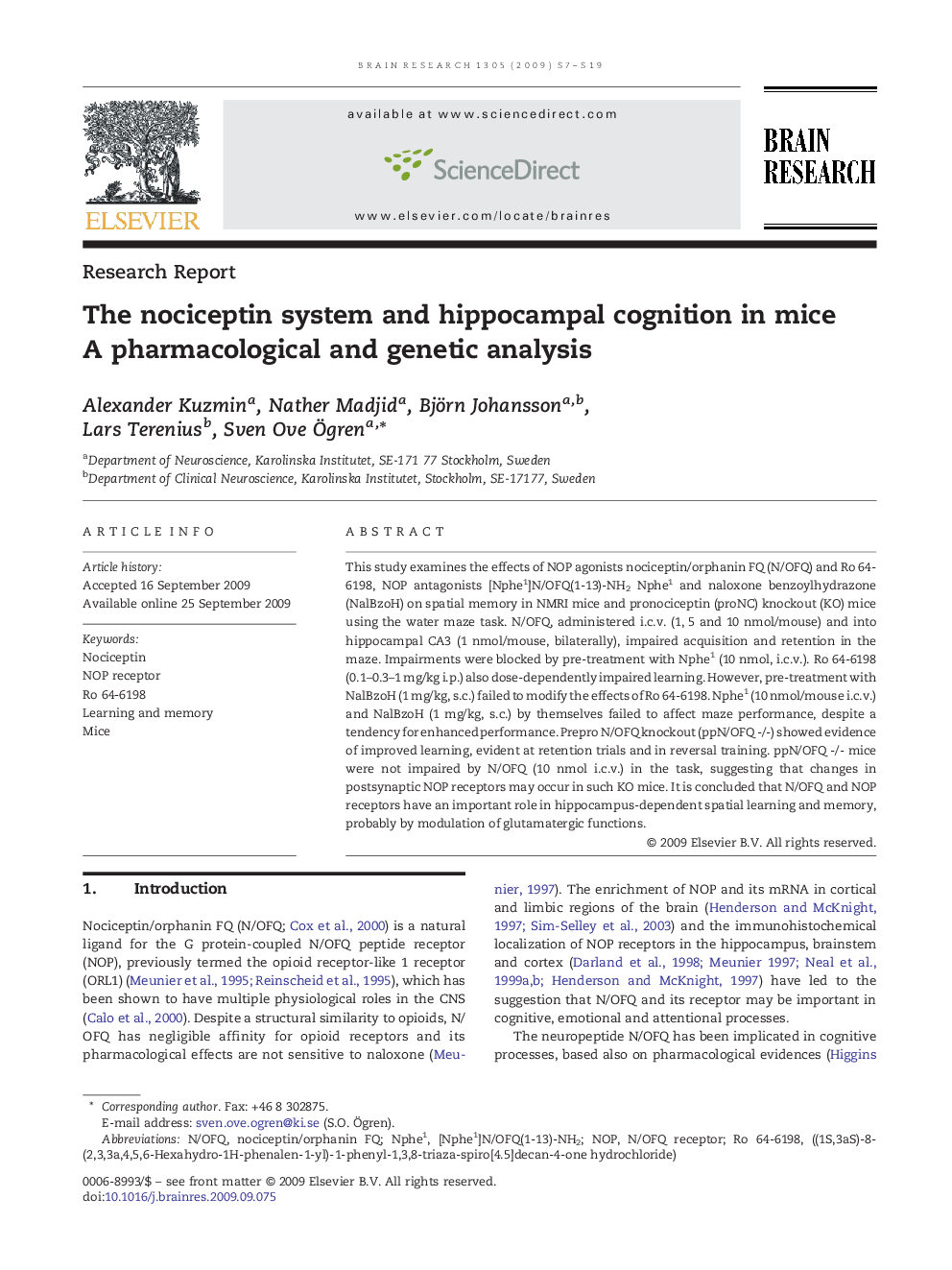| Article ID | Journal | Published Year | Pages | File Type |
|---|---|---|---|---|
| 4327624 | Brain Research | 2009 | 13 Pages |
This study examines the effects of NOP agonists nociceptin/orphanin FQ (N/OFQ) and Ro 64-6198, NOP antagonists [Nphe1]N/OFQ(1-13)-NH2 Nphe1 and naloxone benzoylhydrazone (NalBzoH) on spatial memory in NMRI mice and pronociceptin (proNC) knockout (KO) mice using the water maze task. N/OFQ, administered i.c.v. (1, 5 and 10 nmol/mouse) and into hippocampal CA3 (1 nmol/mouse, bilaterally), impaired acquisition and retention in the maze. Impairments were blocked by pre-treatment with Nphe1 (10 nmol, i.c.v.). Ro 64-6198 (0.1–0.3–1 mg/kg i.p.) also dose-dependently impaired learning. However, pre-treatment with NalBzoH (1 mg/kg, s.c.) failed to modify the effects of Ro 64-6198. Nphe1 (10 nmol/mouse i.c.v.) and NalBzoH (1 mg/kg, s.c.) by themselves failed to affect maze performance, despite a tendency for enhanced performance. Prepro N/OFQ knockout (ppN/OFQ -/-) showed evidence of improved learning, evident at retention trials and in reversal training. ppN/OFQ -/- mice were not impaired by N/OFQ (10 nmol i.c.v.) in the task, suggesting that changes in postsynaptic NOP receptors may occur in such KO mice. It is concluded that N/OFQ and NOP receptors have an important role in hippocampus-dependent spatial learning and memory, probably by modulation of glutamatergic functions.
